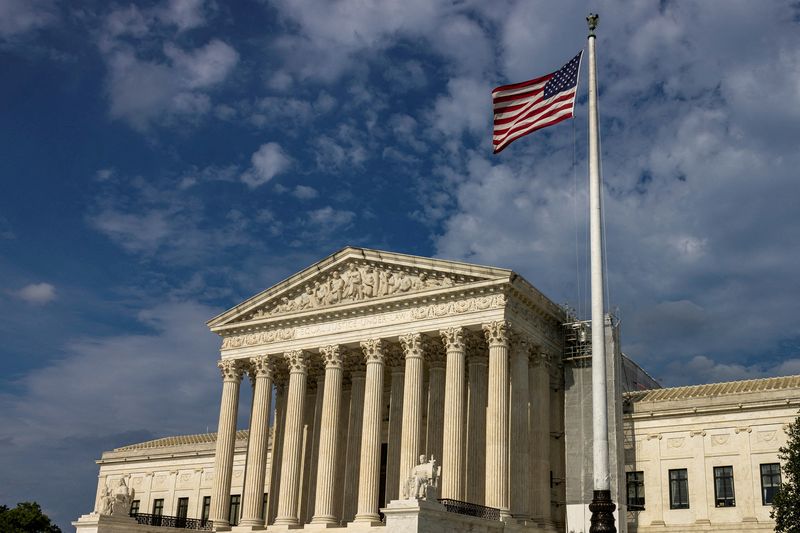By John Kruzel
WASHINGTON (Reuters) -The U.S. Supreme Court agreed on Monday to hear a bid by Louisiana officials and civil rights groups to preserve an electoral map that raised the number of Black-majority congressional districts in the state in a legal challenge by a group of voters who called themselves "non-African American."
The justices took up appeals of a decision by a panel of three federal judges that found that the map laying out Louisiana's six U.S. House of Representatives districts - with two Black-majority districts, up from one previously - likely violated the U.S. Constitution's promise of equal protection.
The Supreme Court in May allowed the map to be used in Tuesday's election that will decide control of the House. Its decision to hear the appeal does not change that. The court is expected to hear arguments in the case and issue a decision by the end of June.
Stuart Naifeh, a lawyer with the NAACP Legal Defense Fund, one of the civil rights groups involved in the case, said, "We look forward to continuing to defend the rights of Black voters to elect their candidates of choice in the Supreme Court."
The boundaries of legislative districts across the country are redrawn to reflect population changes every decade. The Louisiana case is the latest in a series of legal disputes over racial issues arising during this redistricting process.
The Republican-controlled Louisiana legislature approved the map in January after U.S. District Judge Shelly Dick in 2022 ruled that a map it previously had adopted containing only a single Black-majority congressional district in the state unlawfully harmed Black voters.
Dick concluded that this previous map likely violated the Voting Rights Act, a landmark 1965 U.S. law that bars racial discrimination in voting. Black people comprise nearly a third of Louisiana's population.
The Supreme Court in 2023 left Dick's ruling in place.
In January, 12 Louisiana voters identifying themselves in court papers as "non-African American" sued to block the redrawn map in Louisiana. A lawyer for the plaintiffs did not respond to a request to provide the racial breakdown of the plaintiffs.
The three-judge panel in a 2-1 ruling on April 30 temporarily blocked the map as an unlawful "racial gerrymander." The panel decided that the manner in which the districts were drawn likely violated the Constitution's 14th Amendment equal protection provision because race had been the legislature's predominant consideration in the map's design.
The amendment, ratified in 1868 in the aftermath of the American Civil War, addressed issues relating to the rights of formerly enslaved Black people.
Gerrymandering involves the manipulation of the geographical boundaries of electoral districts to marginalize a certain set of voters and increase the influence of others. In this case, the judicial panel sided with the plaintiffs who claimed the disputed Louisiana map unlawfully reduced the influence of these non-Black voters.
Two judges appointed by Republican former President Donald Trump were in the majority in the panel's ruling, with a judge appointed by Democratic former President Bill Clinton dissenting. Black voters tend to support Democratic candidates.
The panel had directed Louisiana's legislature to devise a new map by June 3, though the Supreme Court stepped in to allow the disputed map to be used in the 2024 election.
In their Supreme Court appeal, Louisiana officials had urged the justices to approve the disputed map and finally resolve the long-running litigation.
Louisiana Attorney General Liz Murrill, a Republican, praised the court on Monday for agreeing to hear the case.

"State legislatures have the responsibility under the federal Constitution to draw these maps," Murrill said. "Based upon the Supreme Court's most recent pronouncements, we believe the map is constitutional."
The Supreme Court in May made it harder to prove racial discrimination in electoral maps in a major ruling backing South Carolina Republicans who moved out 30,000 Black residents when they redrew a U.S. House district.